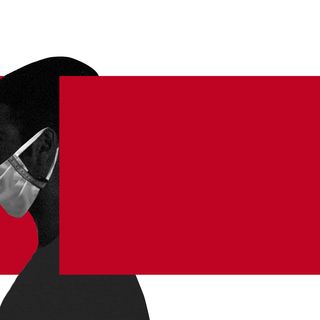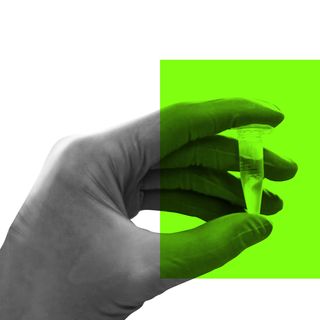The Cleveland Clinic’s Lerner Research Institute is set to open clinical trials for a novel breast cancer vaccine, aimed at preventing triple-negative breast cancer. Triple-negative breast cancer is an aggressive form of breast cancer, with the poorest prognosis.
The “triple-negative” comes from the fact that the cancer is not caused by estrogen, progesterone, or the HER2 protein receptors. In healthy breast cells, estrogen and progesterone hormones “tell” cells what to do; and two out of three breast cancer diagnoses test positive for either hormone receptors. HER2 is a protein that aids cell growth; too much of it can also imply breast cancer.
The treatments for these types of cancers are hormonal therapies and HER2 targeted therapies. But for a small percentage of women who test negative for all three, neither treatment options work, and mastectomy is often the only viable solution. As a result, it accounts for a disproportionately high percentage of breast cancer fatalities and recurrences.
Moreover, African American women are twice as likely to develop the cancer. Around 70-80% of people with mutations in the BCRA1 genes which makes them predisposed to cancer risks also develop this form of breast cancer.
This is why scientists have long hoped for an option that could treat or prevent this particular form of cancer, given how difficult and deadly it is. The present vaccine trial is based on a pre-clinical study, published in Nature Medicine. Before moving into the clinical trial stage, researchers found that the vaccine was effective in preventing breast tumors in mice, and also inhibiting the growth of existing tumors.
“Long term, we are hoping that this can be a true preventive vaccine that would be administered to healthy women to prevent them from developing triple-negative breast cancer, the form of breast cancer for which we have the least effective treatments,” Dr. G. Thomas Budd, from the Cleveland Clinic, said in a press release.
Related on The Swaddle:
Trial Drug Reduces Recurrence of Genetic Breast Cancer in Women, New Study Shows
Participants of the trial will include survivors of early-stage triple-negative breast cancer with a high risk of recurrence. The vaccine aims to stimulate the body’s immune system to prevent
In triple-negative breast cancers, a specific breast lactation protein (α-lactalbumin), is present post-lactation. The vaccine will aim to stimulate the immune system to pre-emptively act against the “retired” protein so that it can prevent emerging tumors from growing.
As of now, the first stage of the clinical trial will study the maximum dosage that people can receive. 18-24 tumor-free participants will receive three shots, spaced two weeks apart. Researchers say that once they figure out how much of the vaccine they can administer, they can begin to look at its effects on the immune system.
Previous studies have attempted to test breast cancer vaccines in general. Dr. Leisha Emens, from Johns Hopkins Kimmel Cancer Center, developed a vaccine that “teaches” the immune system to recognize tumors as foreign bodies and attack them. Breast cancer researchers have tried to find ways to activate the immune system much earlier in general because tumors can tend to grow unchecked by evading immune detection.
Interestingly, researchers were able to develop the mRNA technology used in the Covid19 vaccines as fast as they did, because breast cancer researchers already had their eye on it. Many vaccine trials are currently underway, and most aim to help people with existing cancers or those with a high chance of recurrence, according to the Breast Cancer Research Foundation. The present vaccine, however, is the first of its kind to specifically target triple-negative breast cancer.
“The long-term objective of this research is to determine if this vaccine can prevent breast cancer before it occurs, particularly the more aggressive forms of this disease that predominate in high-risk women,” Vincent Tuohy, the primary inventor of the vaccine, stated in a press release. Tuohy has personal equity in the company which Cleveland Clinic licensed for the vaccine’s production. The US Department of Defence is funding the trial.




